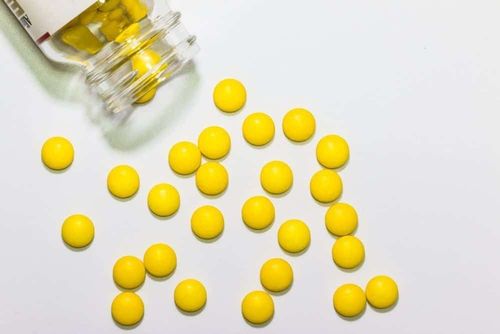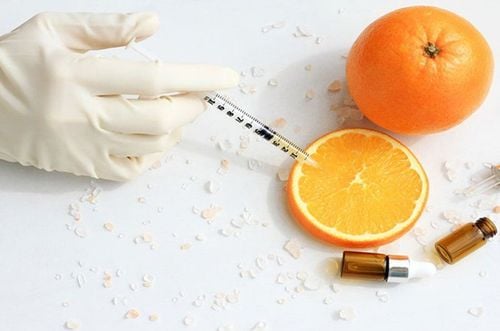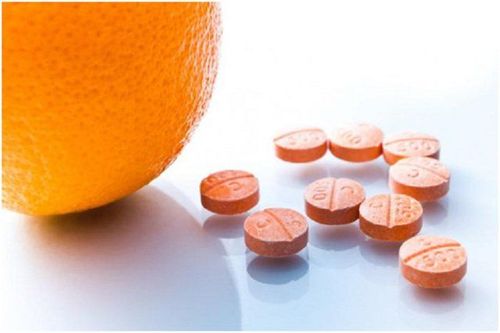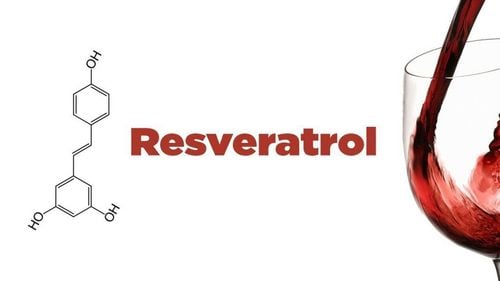This is an automatically translated article.
Some researchers have found that taking high doses of vitamin C as immunotherapy leads to slowing tumor growth. However, they also note that a major obstacle to using high doses of vitamin C to treat cancer in humans can be side effects.
1. High-dose Vitamin C
Vitamin C belongs to the group of soluble substances and nutrients found in foods, such as oranges, grapefruit, papaya, peppers and kale, or in supplements. Vitamin C acts as an antioxidant and helps prevent cell damage caused by free radicals. Furthermore, vitamin C also works with enzymes to play an important role in the creation of collagen. Vitamin C is also known as L-ascorbic acid or ascorbate.
2. How to use high doses of vitamin C
Vitamin C can be given intravenously or taken orally. When given intravenously (IV), vitamin C can reach higher blood concentrations than when vitamin C is taken by mouth.
3. Have there been any laboratory or animal studies done using high doses of vitamin C?
In laboratory studies, tumor cells are used to test a substance to help find out if the substance is capable of causing any anti-cancer effects. In animal studies, tests are done to see if a drug, procedure, or treatment is safe for people to use and works optimally. Laboratory and animal studies are done on animals before a drug, procedure, or treatment is tested in humans.
Laboratory and animal studies have examined the effects of high doses of vitamin C. Laboratory studies show that high levels of vitamin C can kill cancer cells.
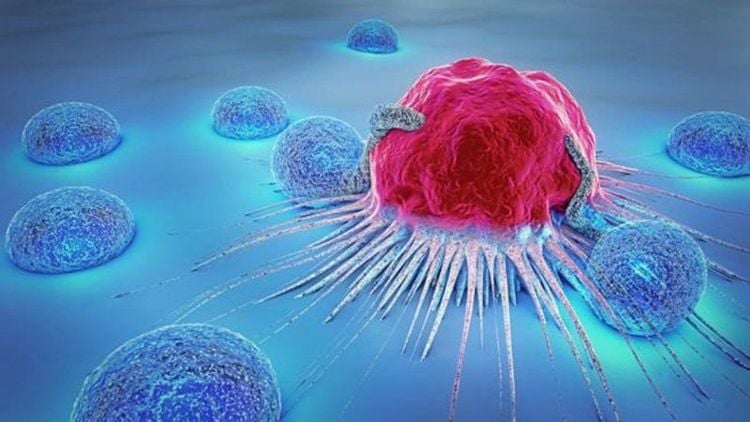
Các nghiên cứu trong phòng thí nghiệm cho thấy rằng hàm lượng vitamin C cao có thể giết chết các tế bào ung thư
4. Are there any studies on the use of high doses of vitamin C in humans?
Some studies on high doses of vitamin C used alone or in combination with other drugs in cancer patients include:
4.1. Studies on intravenous vitamin C alone
One study found that patients who received intravenous vitamin C had better quality of life and fewer side effects than those who did not.
In a single-arm pilot study in patients with prostate cancer, intravenous vitamin C did not decrease prostate-specific antigen levels or prevent tumor growth.
In a study of healthy volunteers and cancer patients, vitamin C was shown to be safe at doses up to 1.5 g/kg in patients without kidney stones or other kidney diseases. or G6PD deficiency. Studies have also shown that vitamin C blood levels are higher when given intravenously than when taken orally and last for more than 4 hours.
4.2. Studies of intravenous vitamin C in combination with other drugs
Studies on intravenous infusion of high doses of vitamin C in combination with other medications have shown mixed results. In a small study of 14 patients with end-stage pancreatic cancer, intravenous vitamin C was given along with chemotherapy and targeted therapy (erlotinib). Five patients did not complete the course of treatment because the tumor continued to grow during treatment. Nine patients who completed the course of treatment had stable disease according to the results of imaging studies. Patients had very few side effects when treated with intravenous vitamin C.
In another small study of 9 patients with advanced pancreatic cancer, the patients received chemotherapy once a week for 3 week with intravenous vitamin C twice a week for 4 weeks in each treatment cycle. The disease did not progress for a median of 6 months in these patients. In combination with vitamin C, no serious side effects were reported.
In another study of 27 patients with end-stage ovarian cancer, chemotherapy alone was compared with chemotherapy and intravenous vitamin C. Intravenous vitamin C was administered during chemotherapy. and for 6 months after the end of chemotherapy. Patients who received intravenous vitamin C had fewer side effects from chemotherapy.
Patients with refractory metastatic colorectal cancer or metastatic melanoma are treated with intravenous vitamin C in combination with other drugs. The treatment didn't work against the cancer, tumors continued to grow during treatment, and patients had serious side effects. These studies did not include a comparison group, so it is not clear how the intravenous vitamin C method affects adverse events.
Patients with non-small cell lung cancer or glioblastoma multiforme in the two pilot trials received standard therapy plus vitamin C. Patients had better overall survival and fewer side effects than the control group.
More studies on combining high dose intravenous vitamin C with other drugs are being done. These include several clinical trials combining intravenous vitamin C with arsenic trioxide, which have shown mixed results.
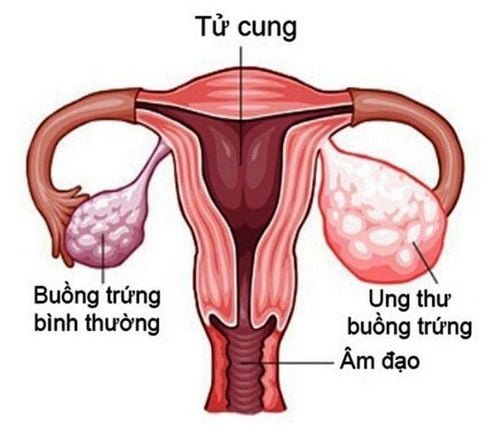
Những bệnh nhân được tiêm vitamin C qua đường tĩnh mạch có ít tác dụng phụ hơn từ hóa trị ung thư buồng trứng
5. Are there any side effects or risks reported with high doses of vitamin C?
High doses of intravenous vitamin C have caused very few side effects in clinical trials. However, high doses of vitamin C may be harmful in patients with certain risk factors.
In patients with a history of kidney disease, renal failure has been reported following treatment with vitamin C. Patients with a potential for kidney stones should not be treated with high doses of vitamin C.
One study reported too much fluid in the body (fluid overload) in relation to vitamin C. This may be due to the intravenous method of delivery and not to vitamin C.
Reports Case reports suggest that patients with a genetic disorder known as G6PD deficiency should not take high doses of vitamin C, as it can cause hemolysis (a condition in which red blood cells are destroyed). Because vitamin C can make iron more easily absorbed and used by the body, high doses of vitamin C are not recommended for patients with hemoglobinopathy (a condition in which the body absorbs and stores more iron than vitamin C). necessary level).
7. Have any drug interactions been reported from high doses of vitamin C supplements to anticancer drug treatment?
A drug interaction is a change in the way a drug works in the body when it is taken with certain other drugs. When high doses of vitamin C are used in combination with certain anticancer drugs, it is possible that the anticancer drugs may not work. To date, these effects have only been found in a few laboratory studies and experiments performed on animals.
8. Is high-dose vitamin C approved by the US Food and Drug Administration for use as a cancer treatment in the United States?
The US Food and Drug Administration (FDA) has not approved the use of high doses of vitamin C as a cancer treatment. The FDA does not approve dietary supplements as safe or effective before they are sold. It is the responsibility of the supplement manufacturer to ensure that they are safe and that the claims on the label are true and not misleading to consumers. How supplements are made is not regulated, so all batches and brands of high-dose vitamin C may not be the same.
Please dial HOTLINE for more information or register for an appointment HERE. Download MyVinmec app to make appointments faster and to manage your bookings easily.
References: cancer.gov




